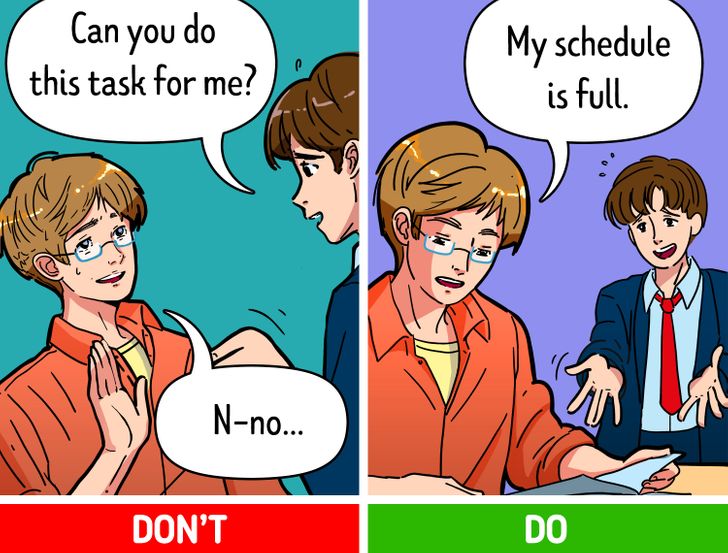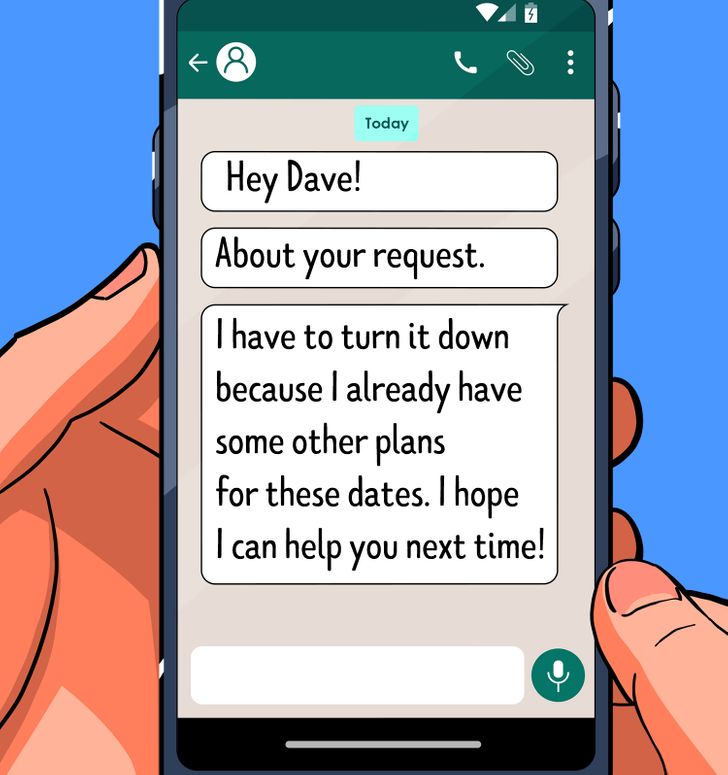How to Say No and Not Feel Guilty About It

Many people instantly feel responsible for their reaction upon responding to a person’s request. That’s why they might feel anxious or even guilty if they need to refuse it. 5-Minute Crafts has prepared 7 easy tips that will help anyone to overcome this uneasiness.
1. Use other ways of saying “no.”

Phrases like, “I can’t do it right now,” or “My schedule is full, I don’t have time for it now,” can help you to avoid saying “no” to others. From another side, you can still agree to something, but only partially. For example, you can say, “I can’t help you with the entire task, but I can help with a specific part.”
2. Prolong the moment.

Instead of saying “yes” or “no” right off the bat, try to ask for more time to give an answer. For example, you can say, “Let me think about it and get back to you later,” or “I will definitely think about it.” This way, you will give yourself the opportunity to think about the request and also analyze your own feelings. After this, you will be able to understand if you really want to give a positive reply.
3. Offer an alternative.

If you can’t possibly do what someone asks of you, don’t change your plans and sacrifice your time to help this person. Instead, you can try to propose a solution. For example, you can use the phrase, “Have you considered this instead?” Or you can give them a contact of some other person or service who can help.
4. Be vague.

You can give an indefinite answer to someone’s request. For example, you can say, “I don’t have free days this week. Could you ask me after?” or “These dates won’t work for me. Could you give me other potential dates?” This can be understood and accepted by others as a way of saying “no.”
5. Don’t explain yourself.

Listing the reasons for your refusal might make others think that there is still a chance that you’ll agree. They can change or adapt their requests in a way that can make you eventually say “yes.” This means you may end up getting trapped in an awkward situation and not be able to get out of it.
6. Do it via phone.

For some people, it might be rather challenging to turn down a request verbally. Instead, you can consider a different approach. Write an email or send a text message to the person. This way, it can be easier for you to collect your thoughts and write down your reasons for the refusal.
7. Put your needs first.

Analyze how you really feel and what you want for yourself. Sometimes it’s important to prioritize your personal needs over the needs of someone else. Otherwise, you might feel mentally down and your productivity can drop too. So, if someone is asking too much of you, don’t be afraid to refuse.